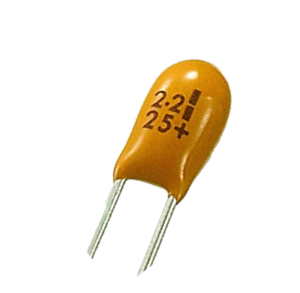Applications of Tantalum
Tantalum and Niobium are so similar that it took 45 years after the discovery of the mineral containing both elements to realize that they were not one, but two distinct elements. In this article, we delve into Tantalum, from the mineral Columbite and the naming of the element to its properties and applications.
DISCOVERY OF TANTALUM
Tantalum was discovered by Swedish chemist and mineralogist Anders Gustaf Ekeberg in 1802. However, years later, it was revealed that he, like his English counterpart Charles Hatchett, had not only examined Tantalum but also Niobium. It wasn’t until 1846 that German chemist Heinrich Rose discovered that, despite their strong similarities, they were two separate elements. Fifteen years later, other researchers confirmed this and gave both elements their own names.
TANTALUM: NAME AND PERIODIC ELEMENT
The element Tantalum is named after King Tantalus from Greek mythology. As the father of Pelops, Niobe, and Broteas, he fell out of favor with the Greek gods by secretly sacrificing his son Pelops and serving him to the gods to test their omniscience. The gods discovered Tantalus’s deception, revived his son, and decided to punish Tantalus. He was imprisoned for the rest of his life in a place where water and fruits were just out of reach.
The phrase “tantalus torment” originates from the myth of Tantalus. This served as the basis for the name of the metal Tantalum, as extracting Tantalum is a challenging task due to its scarcity and isolation process. We symbolize Tantalum with the symbol Ta and atomic number 73.

TANTALUM PROPERTIES
Tantalum is extracted from the black to brown-black mineral Columbite, found in countries such as Canada, Australia, Brazil, Nigeria, and the Democratic Republic of Congo. Tantalum closely resembles Niobium; both metals are highly corrosion-resistant, biocompatible, and have an exceptionally high melting point. Tantalum’s melting point is 2996°C, surpassed only by Tungsten, Rhenium, and Carbon. Additionally, Tantalum is a very ductile, hard, and heavy metal that is easy to work with.
SUPERIOR CHEMICAL CORROSION RESISTANCE
One of Tantalum’s distinctive properties is its corrosion resistance in strong (hot) alkaline solutions such as sulfuric acid. At room temperature, Tantalum withstands almost all chemical acids, including sulfuric acid, hydrochloric acid, and nitric acid. Even at higher temperatures, Tantalum remains highly corrosion-resistant.
Relatively corrosion-resistant metals and alloys like Titanium and Hastelloy corrode quickly in sulfuric acid. However, Tantalum is highly corrosion-resistant even in diluted (less than 10 percent) or heated sulfuric acid. For instance, the corrosion thickness of a piece of Tantalum after one year in concentrated sulfuric acid at 175°C is only 0.0004 mm. Corrosion resistance gradually decreases when Tantalum is used in fuming sulfuric acid or acids at very high temperatures. In 85 percent phosphoric acid at 250°C, the corrosion thickness of Tantalum is even 20 mm after one year.
APPLICATIONS OF TANTALUM
The exceptional chemical corrosion resistance of Tantalum makes it suitable for applications in oil refineries and petrochemical processes. Moreover, Tantalum is used in:
- Jet engines
- Nuclear facilities
- Electronics
- Medical prosthetics
- Capacitors
A capacitor is an electrical component that stores and releases electrical charge. Capacitors are used in radar systems, particle accelerators, satellites, lasers, and electric motors, among other applications. Thanks to its natural properties, the surface of Tantalum forms a dense and stable oxide film with high dielectric strength, and the anodization process of the capacitor is precise and easily controllable. Additionally, Tantalum powder in the capacitor provides high capacitance, low leakage current, low equivalent series resistance, and a long lifespan. These properties make Tantalum capacitors stable, unaffected by environmental changes, and capable of providing significant capacitance. Tantalum capacitors are also a suitable alternative to ceramic capacitors, especially in situations unsuitable for ceramic capacitors.
Curious about the benefits of partnering with Metel? Our team is happy to provide you with information about our program, approach, and successful collaborations with clients in your specific industry. Schedule an appointment via 0416 – 724 800 or email n.kesteloo@metel.nl